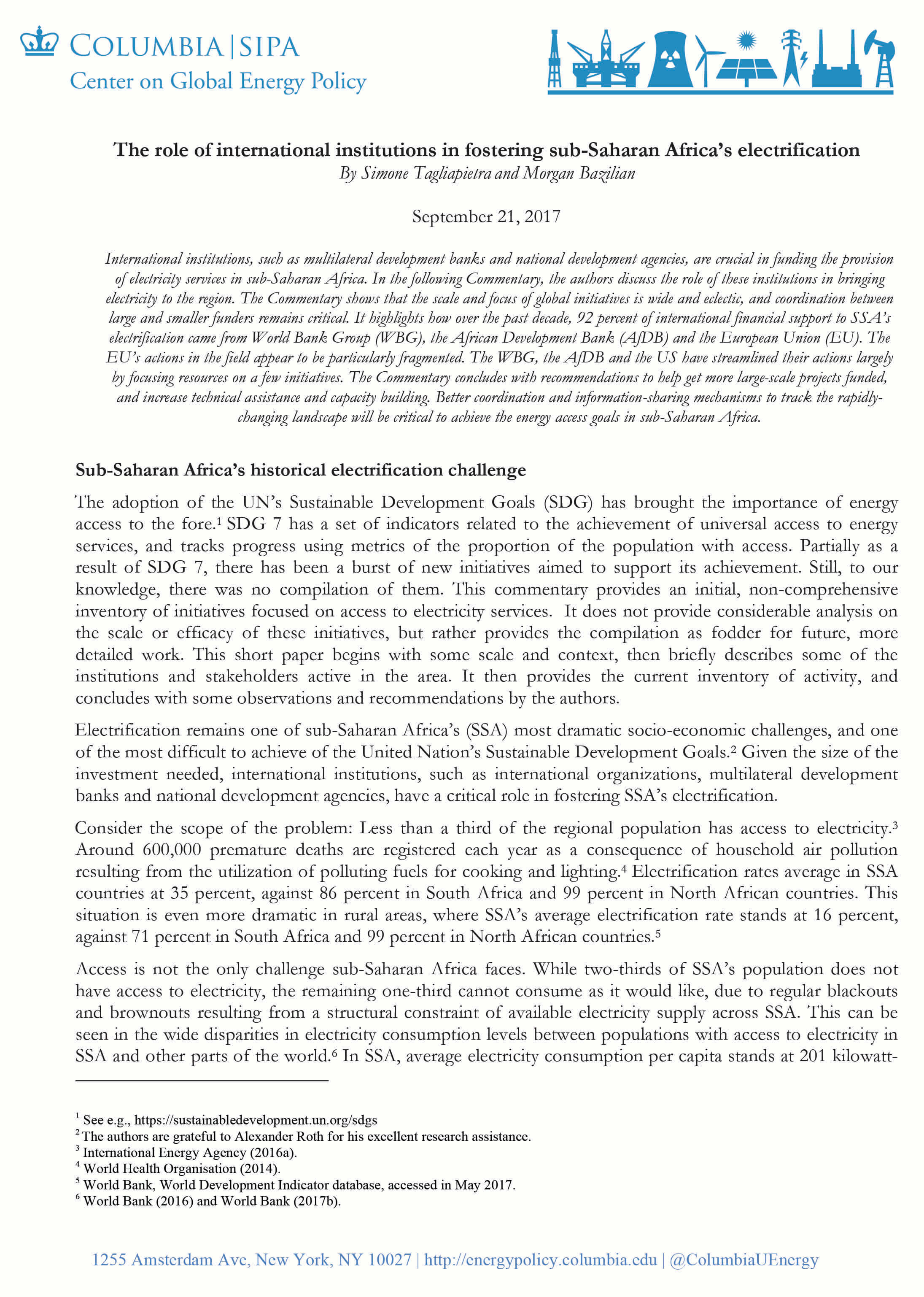External Publication
The role of international institutions in fostering sub-Saharan Africa’s electrification
With a new commentary published by the Columbia University Center on Global Energy Policy, Simone Tagliapietra and Morgan Bazilian discuss the role of international institutions in bringing electricity to sub-Saharan Africa (SSA). The authors offer a review of global financing initiatives for SSA’s electrification, and conclude that better coordination and information-sharing mechanisms to track the rapidly-changing landscape will be critical to achieve SSA energy access goals.
This paper was published by the Columbia University Center on Global Energy Policy (CGEP)
With a new commentary published by the Columbia University Center on Global Energy Policy, Simone Tagliapietra and Morgan Bazilian discuss the role of international institutions in bringing electricity to sub-Saharan Africa (SSA), a region where two-thirds of the population does not have access to electricity, and the remaining one-third cannot consume as they would like, due to regular blackouts and brownouts.
The authors offer a review of global financing initiatives for SSA’s electrification, finding that the scale and focus across initiatives is wide and eclectic. The EU’s actions appear particularly fragmented, favoring overlaps, inefficiencies, and overall higher transaction costs, while the World Bank Group, the African Development Bank, and the U.S. have streamlined their actions in the field, focusing resources on a few initiatives. The authors also note that China has altogether taken a different approach, targeting their efforts through state owned enterprises, rather than via financial assistance institutions. The commentary stresses that SSA’s energy needs are indeed poorly served by a fragmented system of financial assistance, and coordination between large and smaller funders remains critical.











